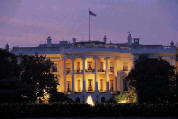|
Introduction
As reflected in the
Fourth Amendment, some of the deepest privacy issues concern the rules for
when the government, for purposes such as law enforcement, can gain access
to persons, houses, papers, and effects. My own work in this area has
focused on electronic surveillance and wiretaps. A related interest has been
in encryption, which in some instances can be a tool for individuals to
reduce the effectiveness of surveillance and wiretaps.
On the encryption side,
The Uses and Limits of Financial Cryptography article explores the
relative contribution of technology and law in hiding sensitive financial
information. I contributed to the Center for Democracy and Technology' law
professor encryption project in 1998. In government, I worked a good deal on
the controversial topic of encryption in 1999, and spoke at the September,
1999 White House press conference announcing a shift in Administration
policy toward freer export of encryption.
On wiretaps and surveillance, I was a representative for OMB for the 1999
report on Unlawful Conduct on the Internet. In 2000 I was asked by John
Podesta, then President Clinton's Chief of Staff, to chair a White House
Working Group on how to update wiretap and surveillance laws for the
Internet Age. This Working Group had representatives from over a dozen
federal agencies. The Administration's legislative recommendations were
introduced in 2000 as S. 3083.
John Podesta's speech announcing the legislation explained our vision of why
new statutory rules are appropriate as technology changes.
After the events of September 11, 2001, I was involved in debates about the
bill that was enacted as the
USA-PATRIOT Act. During the debates, I wrote an analysis of the
surveillance proposals for the
Brookings Institution terrorism website. As the bill was enacted, I
explained my views in an
Atlanta Constitution op-ed piece. In 2002 I wrote an article discussing
some aspects of the Act, as part of a broader discussion of the intersection
between security and privacy. I also testified before a subcommittee of the
House Judiciary Committee on privacy and other issues in the proposed
Homeland Security Department.
Since early 2002, I have been working with the
Liberty and Security Initiative of the Constitution Project on topics
relating to technology and privacy in the wake of 9/11. Our first project
has been a study of state wiretap laws, which are important in themselves
and also as a way to study possible modifications to the
USA-PATRIOT Act surveillance provisions when some of them sunset in
2005. I am also working on a project concerning the history and desirability
(or not) of national identification systems.
(Last revised summer, 2002.)
4th Amendment to the U.S. Constitution
The right of the people to be secure in their persons, houses, papers, and
effects, against unreasonable searches and seizures, shall not be violated,
and no Warrants shall issue, but upon probable cause, supported by Oath or
affirmation, and particularly describing the place to be searched, and the
persons or things to be seized.
Statutes
Employee Polygraph Protection Act
USA Patriot Act
Publications
"If Surveillance
Expands, Safeguard Civil Liberties," Atlanta Journal Constitution,
October 21, 2001.
"Administration Wiretap Proposal Hits the Right Issues But Goes Too Far,"
Brookings Terrorism Project Website, October 3, 2001.
|

